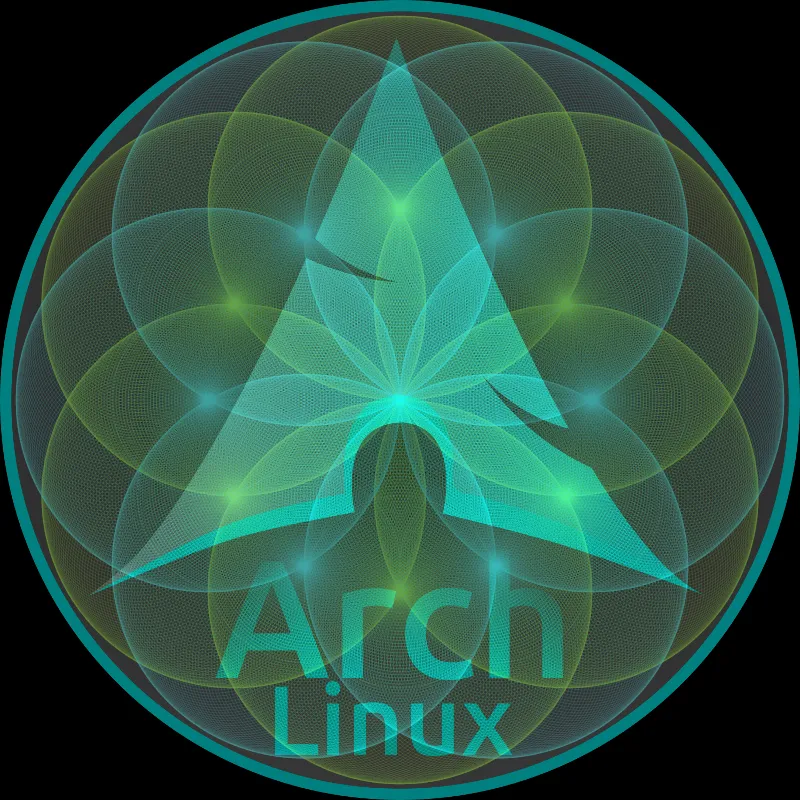
This Great Awakening which is upon us on Earth affects everything, across all domains, including technology and its use; brining the light of collective awareness, understanding, and capability, in ever-greater waves, to areas that previously existed in the darkness of unconsciousness - making what was unconscious, conscious.
All technologies are not the same. A good majority of people utilize technological devices (computers, phones, tablets, etc.) without having any clear idea or understanding of how the OS and the various applications do what they do, and what they're doing at any particular moment.
This is the case with ALL closed-source, proprietary software and hardware, since we can't audit or review the code to actually see what it's doing.
Proprietary/closed source applications, operation systems, and hardware, where the code cannot be audited or reviewed, allows corporate entities with nefarious intentions to perpetrate all sorts of unpleasant activities at our expense, hidden from our eyes, forcing us to give 'trust' where none is warranted.
All mainstream OSes, including Windows, MacOS/iOS, and even Android, are created and directed by Big Tech corporations. This is extremely problematic, because, as we have continued to see to greater and greater extremes, these corporations, demonstrably do not have the best interest of Humanity/us in mind at all, so it behooves us all to dive under the child-block GUIs and learn what is actually going on under the surface.
This is precisely why Free Open Source Software and Hardware (FOSSH) is so exciting and significant, because it returns freedom and power to the people. FOSSH is both empowering and liberating because it allows a global community to come together and create amazing software for everyone, for free. It truly is inspiring.
Linux exits within the greater FOSSH community, and is king, by far, existing in multitudinous iterations (distributions/distros), being crafted into whatever people want. Of these, Arch Linux, which exists in this greater Linux community, is my home, for a long list of reasons, which I may go into in future posts.
To summarize why I love Arch Linux and the entire Arch framework so much, I'll simply say, that from my perspective, it is the most elegant, modular, flexible, versatile, exciting, and absolutely amazing expression of Linux I've ever experienced, and I've tried many. To me no other OS even comes close, though some get honorable mentions.
Once I dipped my toes into the universe that is Arch, it was a done deal for me (almost four years ago at this point). To this day, I'm hooked and enthralled the deeper I go. The deeper I go, the more I learn and integrate, the more I can do. Every single thing I know about Arch Linux, and Linux in general, I learned it from doing it. Pretty much every crazy-ass thing I want to do, I can do in Arch. I mold it into what I want it to be, to how I do things, to how I want it to look and behave, not me having to adapt to how some corporation wants me to use it. I know what's happening on my systems.
I've done some wild and amazing techno magic in my decade in Linux (six years with Ubuntu, and the past four on Arch) and I'm still learning and trying out new things all the time.
Another strong benefit of Arch is that it is completely community funded and run. It is not connected to any corporate entity.
Here is the fantastic description of Arch from the Arch Wiki, for those who may be as curious and enticed as I was. I apologize ahead of time for including such a long quote. I hope I don't get thrashed because of it. I include it here because it the clearest, most succinct description I've seen.
From the Arch Wiki - https://wiki.archlinux.org/title/Arch_Linux:
Arch Linux is an independently developed, x86-64 general-purpose GNU/Linux distribution that strives to provide the latest stable versions of most software by following a rolling-release model. The default installation is a minimal base system, configured by the user to only add what is purposely required.
Contents
1 Principles
1.1 Simplicity
1.2 Modernity
1.3 Pragmatism
1.4 User centrality
1.5 Versatility
2 History
2.1 The early years
2.2 The middle years
2.3 Birth of the ArchWiki
2.4 The dawning of the age of A. Griffin
2.5 Arch Install Scripts
2.6 The systemd era
2.7 Drop of i686 support
2.8 Review of Project Leader role and election
Principles
Simplicity
Arch Linux defines simplicity as without unnecessary additions or modifications. It ships software as released by the original developers (upstream) with minimal distribution-specific (downstream) changes: patches not accepted by upstream are avoided, and Arch's downstream patches consist almost entirely of backported bug fixes that are obsoleted by the project's next release.
In a similar fashion, Arch ships the configuration files provided by upstream with changes limited to distribution-specific issues like adjusting the system file paths. It does not add automation features such as enabling a service simply because the package was installed. Packages are only split when compelling advantages exist, such as to save disk space in particularly bad cases of waste. GUI configuration utilities are not officially provided, encouraging users to perform most system configuration from the shell and a text editor.
Modernity
Arch Linux strives to maintain the latest stable release versions of its software as long as systemic package breakage can be reasonably avoided. It is based on a rolling-release system, which allows a one-time installation with continuous upgrades.
Arch incorporates many of the newer features available to GNU/Linux users, including the systemd init system, modern file systems, LVM2, software RAID, udev support and initcpio (with mkinitcpio), as well as the latest available kernels.
Pragmatism
Arch is a pragmatic distribution rather than an ideological one. The principles here are only useful guidelines. Ultimately, design decisions are made on a case-by-case basis through developer consensus. Evidence-based technical analysis and debate are what matter, not politics or popular opinion.
The large number of packages and build scripts in the various Arch Linux repositories offer free and open source software for those who prefer it, as well as proprietary software packages for those who embrace functionality over ideology.
User Centrality
Whereas many GNU/Linux distributions attempt to be more user-friendly, Arch Linux has always been, and shall always remain user-centric. The distribution is intended to fill the needs of those contributing to it, rather than trying to appeal to as many users as possible. It is targeted at the proficient GNU/Linux user, or anyone with a do-it-yourself attitude who is willing to read the documentation, and solve their own problems.
All users are encouraged to participate and contribute to the distribution. Reporting and helping fix bugs is highly valued and patches improving packages or the core projects are very appreciated: Arch's developers are volunteers and active contributors will often find themselves becoming part of that team. Archers can freely contribute packages to the Arch User Repository, improve the ArchWiki documentation, provide technical assistance to others or just exchange opinions in the forums, mailing lists, or IRC channels. Arch Linux is the operating system of choice for many people around the globe, and there exist several international communities that offer help and provide documentation in many different languages.
Versatility
Arch Linux is a general-purpose distribution. Upon installation, only a command-line environment is provided: rather than tearing out unneeded and unwanted packages, the user is offered the ability to build a custom system by choosing among thousands of high-quality packages provided in the official repositories for the x86-64 architecture.
Arch is backed by pacman, a lightweight, simple and fast package manager that allows to upgrade the entire system with one command. Arch also provides the Arch Build System, a ports-like system to make it easy to build and install packages from source, which can also be synchronized with one command. In addition, the Arch User Repository contains many thousands more of community-contributed PKGBUILD scripts for compiling installable packages from source using the makepkg application. It is also possible for users to build and maintain their own custom repositories with ease.
History
The Arch community has grown and matured to become one of the most popular and influential Linux distributions, also testified by the attention and review received over the years.
Arch developers remain unpaid, part-time volunteers, and there are no prospects for monetizing Arch Linux, so it will remain free in all senses of the word. Those curious to peruse more detail about Arch's development history can browse the Arch entry in the Internet Archive Wayback Machine and the Arch Linux News Archives.
The early years
Judd Vinet, a Canadian programmer and occasional guitarist, began developing Arch Linux in early 2001. Its first formal release, Arch Linux 0.1, was on March 11, 2002. Inspired by the elegant simplicity of Slackware, BSD, PLD Linux and CRUX, and yet disappointed with their lack of package management at the time, Vinet built his own distribution on similar principles as those distros. But, he also wrote a package management program called pacman, to automatically handle package installation, removal, and upgrades.
The middle years
The early Arch community grew steadily, as evidenced by this chart of forum posts, users, and bug reports. Moreover, it was from its early days known as an open, friendly, and helpful community.
Birth of the ArchWiki
On 2005-07-08 the ArchWiki was first set up on the MediaWiki engine.
The dawning of the age of A. Griffin
In late 2007, Judd Vinet retired from active participation as an Arch developer, and smoothly transferred the reins over to American programmer Aaron Griffin, also known as Phrakture.
Arch Install Scripts
The 2012-07-15 release of the installation image deprecated the menu-driven Arch Installation Framework (AIF) in favor of the Arch Install Scripts (arch-install-scripts).
The systemd era
Between 2012 and 2013 the traditional System V init system was replaced by systemd.
Drop of i686 support
On 2017-01-25 it was announced that support for the i686 architecture would be phased out due to its decreasing popularity among the developers and the community. By the end of November 2017, all i686 packages were removed from the mirrors.
Review of Project Leader role and election
At the start of 2020, in a team effort the Arch Linux staff devised a new process for determining future leaders, documented in DeveloperWiki:Project Leader.
As Aaron Griffin had decided to step down from his role, a poll was held to elect a new person to replace him, and on 2020-02-24 its results were published, making the election of Levente Polyak official.
Photo Credits:
The image used here is one I put together a few years ago, and was created using two separate images, sources for which are listed below.
Sacred Geometry:
Sakari Lehtonen

Arch Linux Logo:
https://www.clipartmax.com/middle/m2i8b1K9G6Z5d3N4_arch-linux-logo-190-kb-circle/